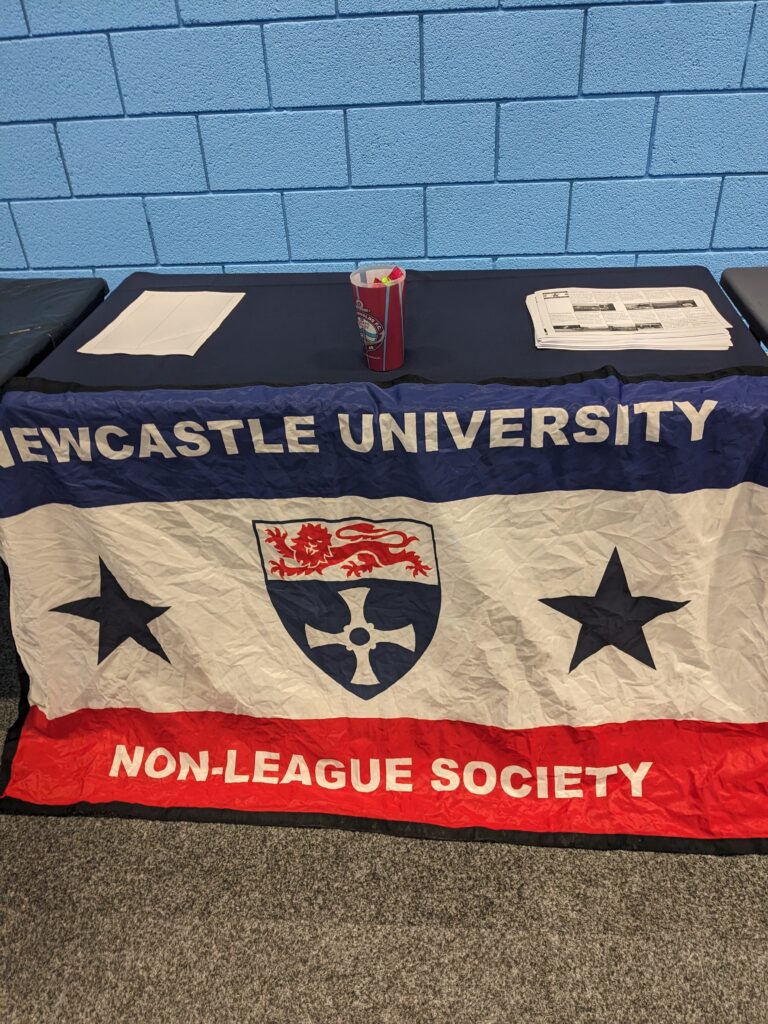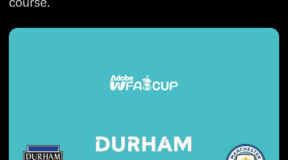
University societies and clubs can be the key to a student’s enjoyment of their time at University. However, for any students who love football but don’t want to play in a team at the university due to the vast amounts of competition, it can be difficult to find a society that allows them to express this interest.
As well as this, to attend a football match in many major university cities tickets are often £50 or more, a major blow to the pockets of students who are already required to be so tight with their money during the ongoing cost of living crisis.
For example, tickets to attend Newcastle United vs Nottingham Forest on the 26th December are currently starting at £82, according to seatpick.com.
To help provide a solution to this issue, at Newcastle University there is a non- league society, which gives young and money savvy football fans the opportunity to visit games at a much more affordable price, while also ensuring another generation gain an interest in non- league football, helping support local small clubs in tough times.
The Non- League Football society at Newcastle University consists of around 25 paying members who attend non- league football matches around the North East each week, all within metro or bus distance of Newcastle.
For members of the society to attend the match, their ticket price depends on the level at which the non- league team they are viewing plays at. For teams in the 9th or 10th divisions of football tickets can be as low as £3, while tickets for professional teams closer to the football league such as Gateshead, Blyth Spartans and South Shields cost around £10.
If a student attended a home game every week of the season, with the average cost being around £7 they would be paying £161 for an entire season’s worth of football at a wide range of venues and levels, while a season ticket for Newcastle United would cost them at least £340, a saving of almost £200, which may be a crucial by the end of the year with all expenses paid.
However, the president of the Non- league society Stephen Cartwright highlighted some other reasons why attending non- league football is a good experience for students.
He said: “You can get a real tight bond with the teams. The other week I had a high five from every single player on the team”.
Due to Non- League teams playing in smaller venues, often venues where you can stand right next to the pitch, people who attend games can get a unique experience compared to what they would get in a stadium that could fit over 10 times the maximum capacity of a stadium like Blyth Spartans Croft Park.
Not only do fans get an incredible close up view of the match but they can often even interact with the players. Interaction with players is not something that commonly happens outside of non- league, but due to the intimate nature of the ground, it is much more plausible to happen.
While a premier league team receives millions of pounds per year from television money and sponsorship deals, a non- league team relies almost exclusively on people attending their games in order to make enough money to continue to operate. The relationship between a club and their fans is more of a two way relationship. Players are more likely to show gratitude to the fans who took time out of their day attend a football match in the lower tiers of English football rather than watch a match considered of higher quality on the television or in their stadium.
For non- league clubs, it is key that young people have an interest in non- league football in order to ensure that the club can continue running for more years to come.
Stephen Cartwright said that clubs getting in contact with the society is a great way for clubs to gain publicity stating that: “Students are well connected and can help encourage more to come”.
Although these clubs have social media accounts, it is difficult for a non- league club to get their name out there compared to a team higher up the pyramid due to less mainstream media coverage.
The relationship between the society members and the non- league football clubs ultimately benefits both parties, as it enables the students interested in football to regularly attend football games for an affordable price while introducing a new range of fans to non- league football which can help to keep the sport alive at a grassroots level.



